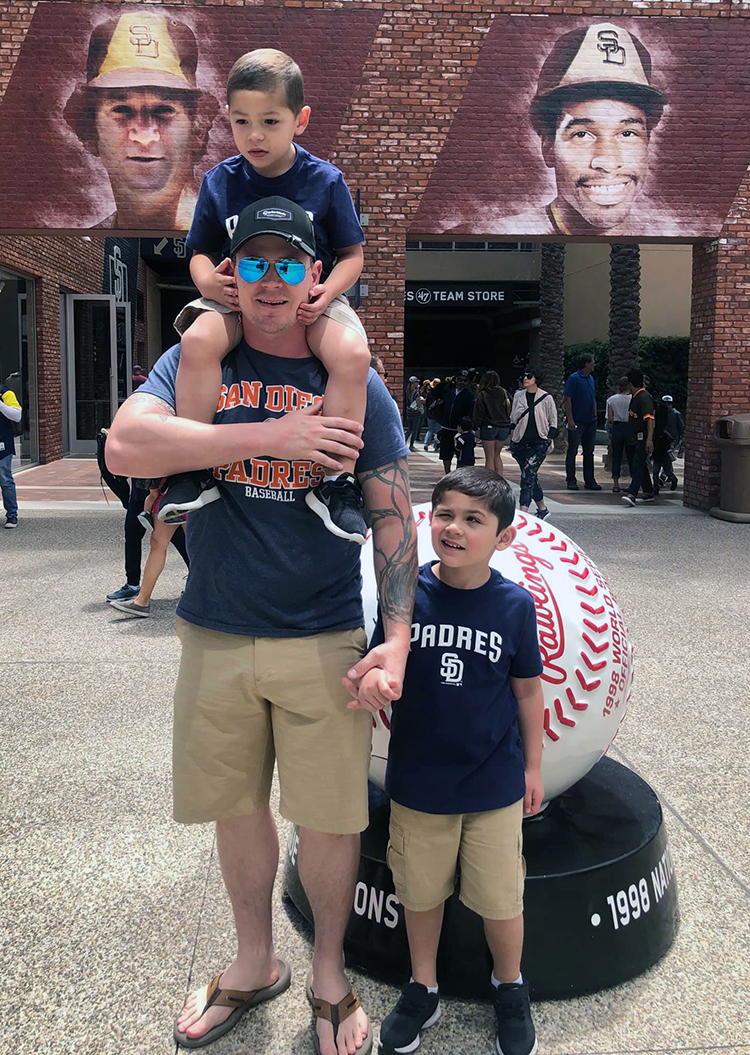As a child of the 80s era, I was diagnosed with ADHD at an early age. My weekends were often spent helping my dad pick up scrap wood on his construction jobs in East Texas. I always knew that my path forward was to become a U.S. Marine, like my father before me. Although I intended to retire after 20+ years, fate had other plans. I was medically retired after seven years due to injuries sustained while serving as a Drill Instructor. However, fate works in mysterious ways, and it led me to meet my wife, the mother of my children. Fast forward several years, and I continued to learn that life is a journey filled with unexpected twists and turns. As a father, I have encountered my fair share of surprises. None have been as impactful as the journey of becoming a father to three children, each diagnosed with autism. This is the story of my journey through awareness, acceptance, and advocacy.
The day my son, Danny, was born remains etched in my memory as one of the most joyous moments of my life. Holding him for the first time, I was overwhelmed with love, hope, and dreams for his future. As a first-time father, I was eager to nurture and watch him grow, unaware of the unique path ahead.

Around 15 months, we noticed subtle differences in my son's development. While other children his age were reaching typical milestones, my son seemed delayed in many areas. However, unlike the usual signs of autism, he was very social and outgoing. He loved to engage with others, always smiling and seeking attention, which initially masked some of the developmental delays and made it harder for us to recognize the signs of autism. However, as he approached his second birthday, my concerns grew. Despite his outgoing nature, his speech and motor skills were not developing as expected. My wife and I sought advice from our pediatrician, who recommended a thorough evaluation. It was during this period of uncertainty and anxiety that we received the diagnosis: Autism Spectrum Disorder (ASD).

We welcomed our second son, David, into the world around the same time we started seeing developmental warning signs with Danny. As he grew, we noticed the same signs of autism that we had seen in our firstborn. The repetitive behaviors, lack of eye contact, and delayed communication skills all felt alarmingly familiar. Another evaluation confirmed our fears: our second child was also on the autism spectrum.
Despite the challenges, we remained hopeful and resilient. When our daughter was born, about 4 years after David, we were vigilant for any signs that might indicate autism. We noticed some of the same behaviors as she developed but to a lesser degree. Her condition was less severe than her brothers', yet it was clear that she, too, was on the spectrum. Each child's experience with autism was unique, and we knew we had to tailor our approach to meet their individual needs.


Receiving autism diagnoses for our children was both a relief and a challenge. On the one hand, it explained their behaviors and development. On the other hand, it began a new journey filled with questions, fears, and unknowns. I realized that understanding autism was crucial for providing my children with the support they needed.My wife and I were immersed in research, reading books, and joining support groups. Through these efforts, I met other parents who had walked similar paths. Their stories, struggles, and successes became a source of strength and inspiration for me. I learned that autism is a spectrum, and each child's experience is unique. This knowledge helped me to embrace my children's individuality and to see the world from their perspective.
Understanding the importance of early intervention, we sought therapies and programs that could help my children develop essential skills. Speech therapy, occupational therapy, and applied behavior analysis(ABA) became integral to our routine. These therapies opened doors to communication, social interaction, and learning for my children. I witnessed small but significant milestones: their first words, a shared smile, and a moment of eye contact. Each achievement was a testament to their resilience and the effectiveness of early interventions. During this time, I began to see beauty in their unique ways of experiencing the world.
